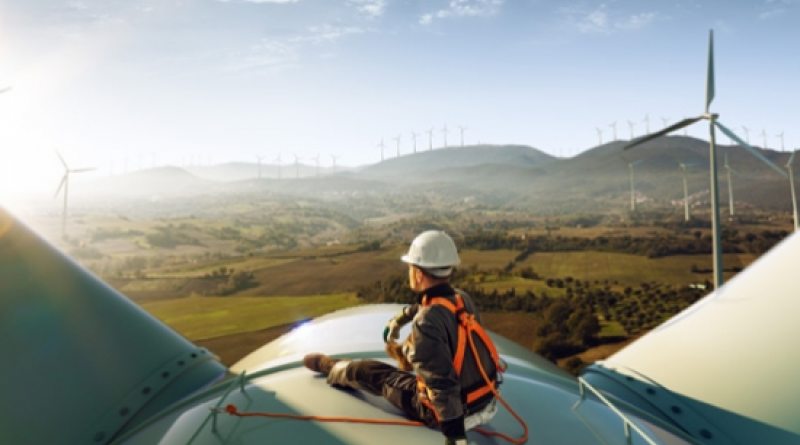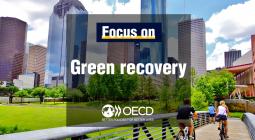Green recovery would cut global emissions by 7% and create millions of jobs.

If all major nations developed strong plans for a green recovery from Covid-19, global annual emissions would be 7% lower in 2030 than in 2019 and millions of new jobs would be created in sectors including energy, transport and materials.
That is according to a new report from the We Mean Business Coalition, which has been engaging dozens of corporates with the global green recovery movement over the past few months.
The report models a ‘return to business-as-usual’ scenario against a green recovery scenario globally, in terms of cost to governments; greenhouse gas (GHG) emissions; economic returns and jobs created. In the green recovery scenario, policy supports are rolled out at scale for energy efficiency; wind and solar power; upgrading electricity grids; tree planting and electric vehicles (EVs). On the latter, the introduction of national car scrappage schemes in which subsidies are only provided to pure EVs is modelled.
On emissions, the report warns that emissions reductions caused by lockdown restrictions will not be preserved in a ‘business-as-usual’ scenario. Annual global emissions, in this case, would only be 2% lower in 2030 than in 2019, jeopardising the world’s ability to meet the Paris Agreement’s trajectory. But in the green recovery scenario, annual global emissions are at least 7% lower.
On jobs, a green recovery scenario would result in no net loss of full-time-equivalent roles in all nations assessed, while a return-to-normal would. The green recovery plan would see the EU playing host to two million more jobs in 2024 than otherwise, with the figure standing at around 900,000 in the US. India would lead the way in job creation and retention, with strong markets for solar power, energy efficiency and low-carbon cooling.
The report acknowledges the measures outlined by the EU and UK to protect jobs in service-based sectors and to create jobs in the energy efficiency sector. The EU last week launched a ‘retrofit wave’ scheme, while the UK has set aside £3bn for improving the efficiency of homes and public sector buildings. But the analysis concludes that broader, more holistic support is needed to simultaneously tackle the socioeconomic impacts of the pandemic and the climate crisis.
“Covid-19 has exposed deep flaws in how we consider systemic risk, and simple return to pre-pandemic business-as-usual would be a failure to understand what lies ahead and would store up further problems we would be even less well-suited to face,” the European Corporate Leaders Group’s director Eliot Whittington said.
“The only viable way forward is a resilient, inclusive and climate-neutral recovery plan.”
A crossroads for the green recovery
The report comes as the EU is outlining further details as to how its Covid-19 recovery package will be spent. The bloc has bound the €750bn package to a ‘do no harm’ principle for society and the environment.
Similarly, the UK is expected to unveil fresh funding commitments by the end of the year. Although the Autumn Statement was cancelled and the Winter Economic Update – unlike the Summer Economic update – did not contain any specific measures for the green economy, policy frameworks including the Buildings Strategy, Heat Strategy and Energy White Paper are all due out in the coming weeks.
The London School of Economics (LSE) has also seized this opportune moment to publish a green recovery study.
According to analysis from the University’s Centre for Economic Performance and Grantham Institute on Climate Change and the Environment, aligning recovery policies with net-zero will ultimately create more and better jobs – and will help the Conservative government on its mission to ‘level up’ all parts of the UK.
The analysis recommends that policymakers build on existing financial packages for walking and cycling and energy efficiency with longer-term schemes, to prevent a ‘boom and bust’ for related sectors and to generate continual economic and environmental progress. It also urges joined-up and targeted policy supports for energy storage and electricity networks; EV manufacturing and charging infrastructure; green and blue hydrogen; carbon capture, use and storage and nature restoration.
In each of these fields, tens of thousands of jobs could be created in the coming years, with places like the North East, the Midlands and Scotland set to benefit substantially.
LSE’s findings and those of the We Mean Business Coalition echo those made by Forum For the Future in a major policy briefing published last week. The briefing warns that policy decisions made over the next six to 18 months will either lock the world into high-carbon systems and prolonged unemployment, or spur progress on social and environmental sustainability more holistically or rapidly than ever before.
19 October 2020
edie net




